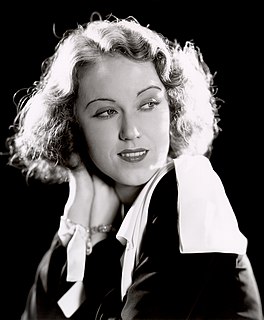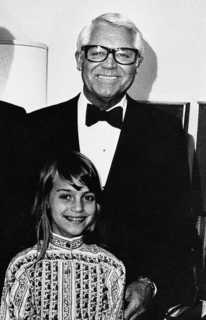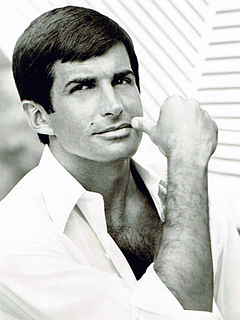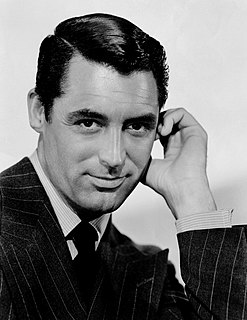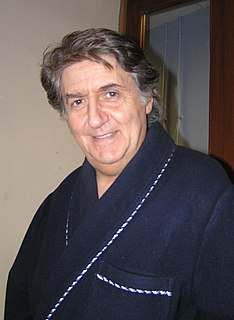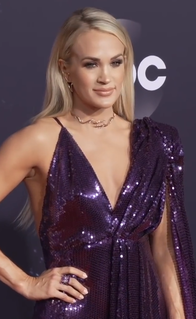A Quote by Fay Wray
Cary Grant was wonderful to work with on stage. He would move downstage, so that as he looked at me the audience had to look at me, too. He knew a lot about the theater and how to move around. He was very secure.
Related Quotes
My fourth mother, my godmother, she passed away a couple years ago - her name was Gwen. She was the theater director over at the gym where I grew up and learned about all those awesome things I told you about already. She was the one who taught me terms like "upstage" and "downstage," all those technical things about the art of what I do - how to breathe what I see, how to move. They were all her tactics, not anything learned or given to me through a theory, but rather by her natural abilities.
But Jude,' she would say, 'you knew me. All those days and years, Jude, you knew me. My ways and my hands and how my stomach folded and how we tried to get Mickey to nurse and how about that time when the landlord said...but you said...and I cried, Jude. You knew me and had listened to the things I said in the night, and heard me in the bathroom and laughed at my raggedy girdle and I laughed too because I knew you too, Jude. So how could you leave me when you knew me?
It's a lot of accumulated joy and tension and all kinds of emotions just pouring out of all us. We've all been preparing for this day and we all knew that one day we would just have to move on with our lives and careers even though we all love this show and love working together. But it's still an incredibly emotional time, especially for me with a lot of journalists asking me how it feels about FRIENDS coming to an end. It's started to make me think very deeply about what it's all meant to me and that's made me ever more emotional!
I have to work hard and wear pants. I've worked really hard these last years, and since everything is coming together at the same time, I had to move the play back. I'm kind of in love with my theater agent. I'm a true naïve about the theater, a total innocent. He says to me, have you ever been to a rehearsal room? Do you realize you are opening at the Public in New York? You do understand that the audience will be New York theater people?
I think one of the things that is important, for me, though a lot of people would disagree with me, is that you be founded in theater so that you understand what an audience is, what kind of an animal it is and how to play with it. How to have fun with it, how to sympathize with it, all the things that an audience is. I don't think you're going to find that out unless you do theater.
As a child, I was just never that interested in the lives of my favourite actors, like Cary Grant. I do wonder whether knowing too much about someone's personal life interrupts an audience's ability to suspend disbelief, to really invest in the characters. My preference would always be that people engage with the work.
You know with Obama being elected, we had a wonderful opportunity. I hope it's not blown, and we have forms of government that don't seem to be up to the level of the leaders who are around who will want to move this country in a proper direction. Where that goes and how that goes, I mean, we seem determined to not move ahead, to stay in the same place. And there are a lot of nuts out there as well.
The challenge for me was not just the prosthetic work and how to move like an older man would move, but more so how to have 50 years of experience in the workplace and talk to a young Robert F. Kennedy as if he was some political upstart that didn't know what the hell he was talking about. That was the big challenge [in the J. Edgar Hoover m?vie].
In 'Charade,' there was a big fight. George Kennedy was playing one of his first big heavy roles; he had a hook for a hand, and he was real ugly. Cary Grant was Cary Grant. They were on a slanted roof, a very exciting fight, and we agreed there shouldn't be any music, just the grunts and the action.
The first one I remember singing on stage was 'Somewhere Out There' from 'An American Tail.' I was around 7, and my choir teacher at school asked me if I would sing it. My parents told me that I needed to move around the stage, so for the entire time I just walked back and forth from side to side while I was singing - there's videotape of it.
I knew that we had an obligation and that was to keep an energy in it and try to keep the audience interested. In fact, I asked some of the actors to take a look at His Girl Friday, a Howard Hawks film with Rosalind Russell and Cary Grant, because they talk over each other and there's a great energy.
